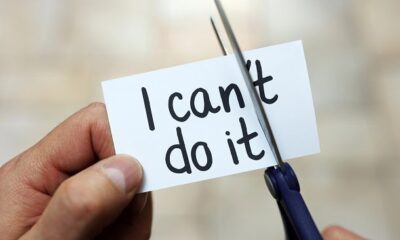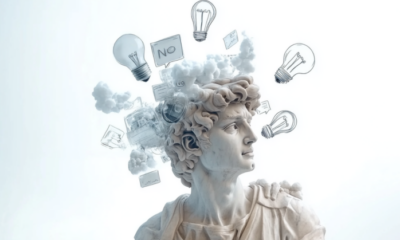“Do not anticipate trouble or worry about what may never happen. Keep in the sunlight.”
Benjamin Franklin
“If I don’t train enough, of course I’m nervous.“
Haile Gebrselassie
It starts with just a little tremble within. Then a pressure builds up.
A hand or foot starts to fidget. Your palms become moist and you start to feel not quite like yourself anymore.
The inner calmness you felt has flown out the window.
Nervousness is back, like an old friend you didn’t want to see.
Just in time for that date you had been looking forward to for the past week. Or the important meeting at work or your presentation in school.
So what can you do at this point?
Back down, come up with a poor excuse and cancel (as your self-esteem plummets)?
Plow through the meeting or date while being not quite your best self?
It is certainly possible. I have done both.
But an even better approach has – in my experience – been to find strategies and develop habits that help me to handle this challenge.
Here are 7 of my favorite habits for dealing with and overcoming nervousness.
1. Prepare if possible.
A bit obvious. But doing your preparation in time and not at the last minute and doing the preparation well – without trying to do it perfectly – rather than somewhat sloppily make a big difference.
You’ll feel more sure of yourself and relaxed about what you are about to do.
- If you have an important meeting, do your homework so you know what will or may come up in the meeting.
- If you have a date, perhaps try to think of 2-3 interesting topics/questions to bring up in case the conversational flow hits a stop.
- If you have a job interview, think about what they may ask you and figure out some good answers.
2. Ask yourself: what is the worst that could realistically happen?
This question has helped me many times to calm down and to stop building a mountain out of a molehill.
Because the worst that happened when I was dating was that I had a somewhat awkward date with someone I did not have good chemistry with.
It didn’t lead to a second date and sometimes I felt bad for a day or two. And that was pretty much it.
But the sky didn’t fall because it was a bad date. I got up the next morning again and had often learned something good from it.
3. Visualize in a positive way.
It is so easy to get stuck in the usual and habitual negative visualizations in your mind of how a situation will go. And so you get nervous.
Try taking a break from it the next time you have an upcoming date, party, or meeting.
Just this once allow yourself to see things in a positive way.
Here’s how to do it:
- Lie down in your bed or sit down somewhere where it is comfortable. Close your eyes.
- In your mind see how great the situation will unfold – see and hear it – and also how great you will feel at this meeting. See yourself being positive, open, and having a wonderful time with a smile on your face. And see the excellent outcome you want in your mind.
- Then release by visualizing that it has already happened, that the meeting is over with the desired result. This is surprisingly effective and will get you into a good, confident, and relaxed headspace before even stepping into that conference room, classroom, or pub.
Try it and see how this exercise works for you. Maybe it becomes something you want to keep doing.
4. Slow down and breathe with your belly.
A few minutes before you step into the situation that makes you nervous, slow down. Walk slower to the meeting place. Move slower.
Even stop for a minute if you like and stand still.
Then breathe through your nose. Take a little deeper breaths than you usually do. Make sure you breathe with your belly. Not with your chest (a common problem when people get stressed or nervous).
Focus on just your slow in- and out-breaths for a minute or two. Only on the air going in and out of your nose.
This will calm you down, make it easier to think normally again, and that singular focus can draw you back into this moment rather than past failures or future worries.
5. Assume rapport in social situations.
After you have slowed down and focused on your breathing, I have another good habit if you still feel a bit nervous and you are going into some kind of social situation.
This one worked especially well for me when I was single and was dating. And it is also very useful just before any other kind of meeting.
The habit is to assume rapport.
This means that just before you meet someone, you pretend and think to yourself that you are meeting one of your best friends.
Then you’ll naturally slip into a much more relaxed, comfortable, confident, and enjoyable emotional state and frame of mind. In this state of mind, the conversation tends to flow more naturally too, without much thinking.
Just like with your friends.
This is one of the very best and most helpful social habits I have adopted in the past 10 years or so.
6. Remember: people don’t think about you and what you do that much really.
You may feel like everyone is watching, judging, and thinking about you a whole lot. And so you get nervous, worried, or hold yourself back in life.
But a sobering realization I have had over the years is that people simply don’t care that much about what you do.
Just because you may think a lot about what you do and say doesn’t mean that others do that too.
They have their own plate full of doing the same thing as you: focusing on themselves, on their pets and kids, and on their own challenges at this moment in time.
This realization may make you feel a little less important. But it also sets you free a bit more to do what you want to do in life.
7. Tell yourself that you are excited.
Harness the nervous energy into something that will help you.
If you cannot minimize the nervousness in some situations by using the tips above, then take a different approach.
When the nervousness bubbles up, tell yourself that you are excited about the meeting, presentation, etc.
This helps you to change perspective on what is happening inside of you and I have found that it helps me to get a boost of enthusiasm and openness for a short while.
So I can go into that meeting with that more helpful mindset and emotional state.
And a few minutes into the meeting, the excited energy has usually been used in a helpful way and I go back to feeling more relaxed and centered again.








































